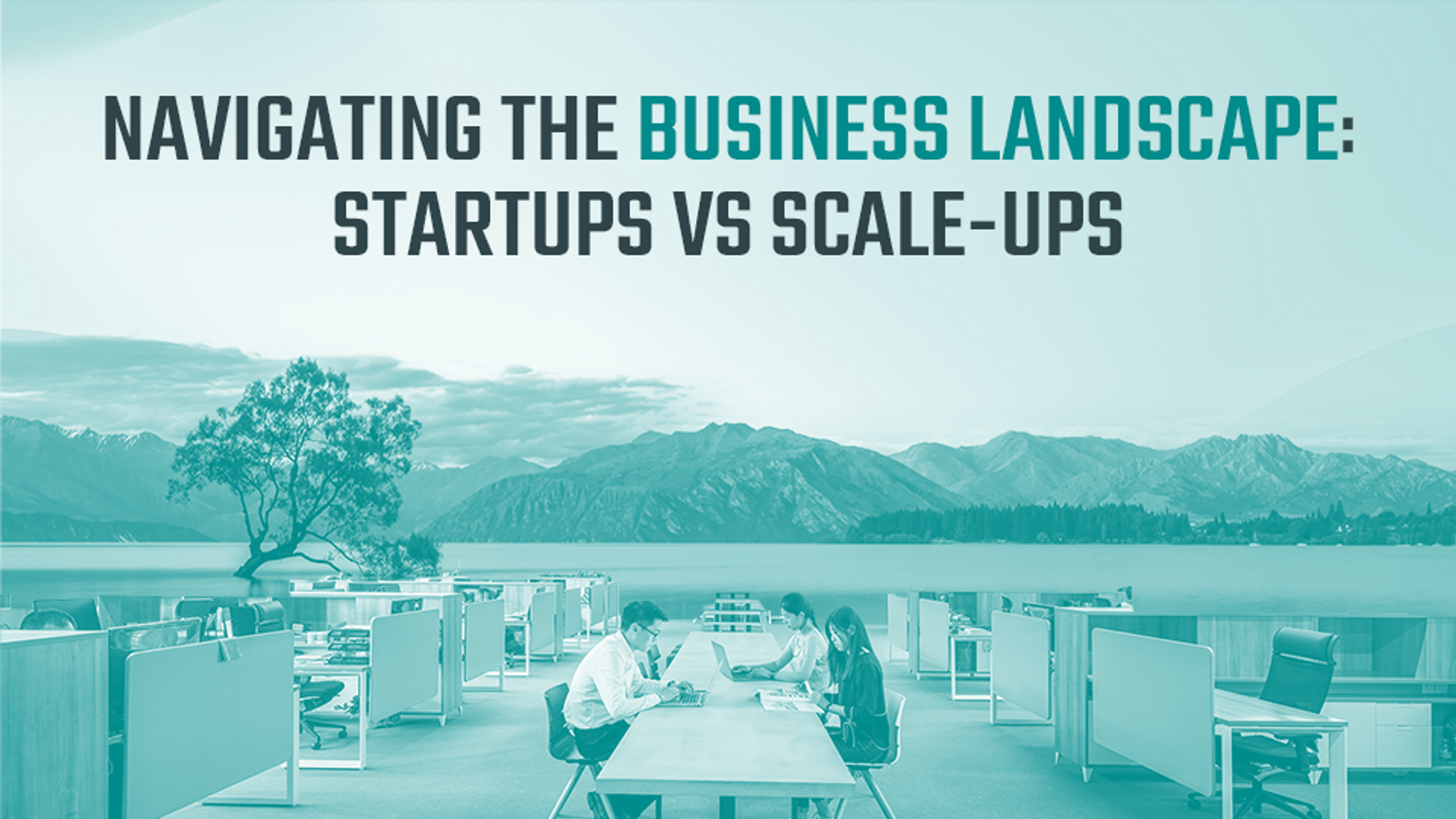Navigating the Business Landscape: Startups vs Scale-Ups
Connor Thornton
Published on

In today's fast-paced and dynamic business environment, the terms "startup" and "scale-up" have become synonymous with entrepreneurial ventures. We are attracted to these companies because of their innovative ideas, disruptive technologies, and potential for exponential growth. However, understanding the distinctions between a startup and scale-up is crucial for entrepreneurs, investors, and business enthusiasts alike.
So, let’s break it down. What is the difference?
What is a startup?
- A startup is a newly established company in its early stages of development. Startups can often be characterised by a few key attributes:
- Innovation - Startups seek to create disruptive innovation through their ideas, products, or services. They aim to address a specific market need or solve a problem in a unique way.
- Uncertainty - Startups operate in an environment of uncertainty, as they navigate uncharted territory and face constant challenges such as market validation, product development, and establishing a customer base.
- Limited resources - Startups often have limited financial resources, small teams, and a high degree of flexibility and adaptability. Startups often seek external funding, such as venture capital or angel investments, to support their growth.
- Rapid growth potential - Despite their limited resources, startups have the potential for rapid growth and scalability. They aim to capture market share, gain traction, and attract customers and investors.
What is not a startup?
- A newly founded company is not necessarily a startup. To be considered a startup, the company needs to be innovative or make use of new technologies. For example, if a new shop in your local market has been growing and showing success, it is still a small business, not a startup.
What is a scale-up?
- A scale-up is a company that has progressed beyond the initial startup phase, achieving significant growth and scale. Scale-ups are characterised by the following:
- Validated business models - This demonstrates that their product or service has market demand and generates consistent revenues. As a result, there is a better understanding of the target market, value proposition, and competitive advantage.
- Sustainable growth - Scale-ups experience considerable and sustainable growth, expanding their customer base, market reach, and revenue streams. At this stage, they can grow rapidly without facing the same uncertainty as startups.
- Scaling operations - Scale-ups focus on scaling their operations efficiently and effectively. This consists of expanding their team, refining their processes, optimising their infrastructure, and establishing partnerships to support growth.
- Potential profitability - Unlike startups, which often prioritise market share and user acquisition over profitability, scale-ups typically work towards achieving profitability or positive unit economics. They aim to scale their business while maintaining or improving profitability.
Despite the fact that both startups and scale-ups are entrepreneurial endeavours, startups are in the early stages of development, focusing on innovation, market validation, and rapid growth, when scale-ups however, have progressed beyond the startup phase, have a proven business model, and are focusing on scaling operations and achieving profitability.
Do you know where to start when scaling your business? If not, we can help you!
Starting July this year, we are running the Energy Tech Hub Scale Program - a series of interactive workshops for scaling clean-tech and sustainability businesses to help drive the energy transition.
Organised around critical scaling challenges and featuring many experienced external guest speakers, this free series is open to all Victorian scale-ups as well as interstate and internationally based scale-ups.
Graduates of the program will automatically qualify for consideration for investment at their next round through our Energy Transition Fund.
We’d love to have you in our program! Apply before the 21st of July.
